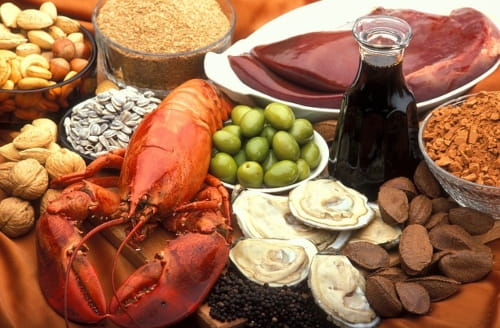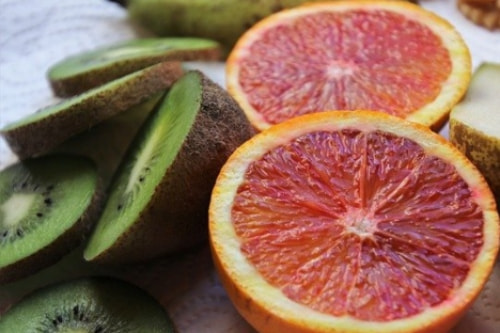While the world continues to wait on a COVID-19 vaccine, you might be wondering if there’s anything you can do to boost your immune system and protect yourself from the virus, especially if you are at risk.
You’re probably doing all you can to stay safe and keep those around you safe. Washing your hands, wearing a mask, limiting your social circle.
But is there anything else you can do to protect yourself from COVID? Or to help strengthen your immune system to fight it off?
Turns out there are a few basic vitamins and minerals that may actually help you do just that.
Here are the top 3 things you can do to boost your immune system against COVID:
1. Get your vitamin D!
This is number 1 for a reason. There is quite a lot of evidence suggesting that vitamin D is a contributing factor to COVID risk and severity.
A recent study showed that people who were not getting enough vitamin D were 1.8x more likely to test positive for COVID than people with sufficient vitamin D levels (1).
That’s almost double the risk of getting coronavirus, based on just one vitamin!
And there have been many other studies that have similarly shown that low levels of vitamin D are linked to the occurrence of acute respiratory infections (2, 3, 4) as well as the severity of respiratory infection (5). (COVID is a respiratory infection that can affect both the upper and lower tract).
What’s more, vitamin D has been shown to have a protective effect on respiratory tract infections, meaning vitamin D supplementation (given daily) may reduce risk of infection (6, 7). This protective effect works best on people who are already vitamin D deficient.
How does it work?
Vitamin D does a lot of good things for your immune system.
For one, it reduces the occurrence and duration of inflammatory responses.
Excessive pro-inflammatory signalling known as a “cytokine storm” is what can make severe COVID cases fatal.
Vitamin D is thought to help reduce some of the inflammatory responses that worsen the outcome of critically ill COVID patients (such as TNF-α, IFN-y, and IL-60 responses).
In addition to reducing pro-inflammatory cytokines, vitamin D also:
- helps produce anti-inflammatory cytokines
- promotes regulatory T cells
- boosts mucosal defenses
- plays a large part in genetic regulation of immune cells
Vitamin D is also thought to suppress a cell receptor called ACE2 (and co-receptor called DPP4/CD26) that the COVID virus must bind to in order to enter the cell. If the virus cannot enter the cell, if cannot multiply and manifest as the COVID disease in the respiratory system. (Great job, vitamin D!)
Further clinical study is still needed to determine whether vitamin D supplementation is an effective protective measure against COVID-19 specifically.
But based on all the evidence so far, it seems like a no-brainer to make sure you are getting enough vitamin D!
What’s the best way to get vitamin D?

The sun!
Vitamin D is made in the skin when exposed to UVB radiation (sunlight).
You can also get vitamin D through food, but typically not enough to meet your daily requirements.
The best foods for vitamin D include:
- fatty fish (salmon, tuna, mackerel, etc.)
- beef liver
- eggs
- mushrooms
- fortified dairy and cereal products
The sun is definitely the best way to get enough vitamin D – you only need about 10-30 minutes of direct sun exposure to get your recommended daily vitamin D intake (for adults: 600 IU/day (15 mcg)(8)).
If you live somewhere with freakishly cold, long, dark, and all-round miserable winters like Canada (can you tell I’m not a fan of winter?), supplementation is recommended due to the lack of sunshine hitting your skin during the winter months.
Without regular sun exposure, or supplementation, you are at risk of deficiency.
The shocking thing is, vitamin D deficiency is surprisingly common. In fact, over 40% of the US population is vitamin D deficient or insufficient! (9, 10, 11)
Deficiency tends to be most common in individuals with dark skin, individuals who live at higher latitudes/further from the equator, the elderly, and overweight/obese individuals.
These populations that are at risk of vitamin D deficiency also happen to be at a greater risk of COVID. Vitamin D status is thought to be a major contributing factor here.
All the more reason to make sure you are getting enough vitamin D, especially if you are vulnerable to deficiency.
It’s a simple and easy thing to do that can potentially greatly reduce your risk of COVID infection and mortality.
2. Get your zinc!
Getting enough of this mineral is another important way to boost your immune system against COVID.
Zinc is crucial for proper immune function including:
- regulating growth and function of immune cells
- modulating antiviral and antibacterial activity
- regulating the inflammatory response
- anti-inflammatory and anti-oxidative properties
Similar to vitamin D, zinc reduces the pro-inflammatory cytokine storm.
And remember that ACE2 receptor that vitamin D might help suppress?
Zinc may also play a part in reducing ACE2 receptor activity (12, 13).
The role of zinc in COVID prevention and treatment definitely still needs to be investigated.
Buuuuttt…
Zinc supplementation is shown to reduce common respiratory infections such as the common cold (14, 15, 16), and strengthen respiratory defenses such as mucociliary clearance and epithelium integrity (17).
Aaaannd…
A high percentage of COVID patients are zinc deficient, and these deficient patients have high complications, hospital stays, and mortality (18).
Again, populations at risk of zinc deficiency (the elderly, obese, diabetics, immunosuppressed, those with cardiovascular or respiratory conditions, those with chronic diseases, etc.) are also populations at risk of COVID.
These populations especially may benefit from maintaining adequate zinc levels and/or supplementing with zinc.
What’s the best way to get zinc?

The recommended daily zinc intake for adults is 8-11mg/day (19).
The best foods for zinc include:
- oysters
- red meat
- poultry
- crab
- lobster
- beans
- nuts
- whole grains
- dairy products
3. Get your vitamin C!
Vitamin C is another vitamin that is super important for the immune system.
Researchers are looking into whether high-dose, intravenous vitamin C is effective as a treatment for COVID, particularly severe COVID cases.
It seems hopeful given that vitamin C helps shorten ICU stays (20) and mechanical ventilation duration (21), both of which are a problem with severe COVID cases.
However, it is important to note that this is high-dose, intravenous vitamin C. The oral vitamin C supplementation you are probably more familiar with is a much lower dose.
Typical oral vitamin C supplementation has a small effect on shortening the duration and severity of upper respiratory tract infections such as the common cold (22). There are very contradictory results in terms of whether it has a big enough effect to make vitamin C supplementation worth it.
But for COVID, you’d probably agree that any small effect would make it worth it given how easy and safe vitamin C is to supplement with.
Besides, vitamin C is always going to be important for a healthy and strong immune system.
Vitamin C plays an important role in proper immune function, including:
- antiviral properties
- modulating cytokines
- increasing interferon-α production
- reducing inflammation
Also, when the immune system is very active – such as during an infection – vitamin C levels drop and need to be replenished.
Given its role in the immune system, it is a good idea to at least maintain sufficient vitamin C levels. The current recommended daily intake for adults is 75-90mg/day (23).
What’s the best way to get vitamin C?

It’s fairly easy to get tons of vitamin C from fruits and veggies.
The best foods for vitamin C include:
- citrus fruits (orange, lemon, grapefruit, etc.)
- red and green peppers
- kiwi
- broccoli
- brussels sprouts
- cantaloupe
- tomato juice
Summary
Vitamin D may help reduce risk and severity of COVID. It is also all-around good for your immune system.
Zinc and vitamin C are also very important for a healthy immune system and may play a part in helping it fight COVID.
To boost your immune system, especially against COVID, it seems the best thing you can do is make sure you are getting enough vitamin D, vitamin C, and zinc. (especially vitamin D!)
I hope you found this article on how to boost your immune system against COVID, helpful and hopeful! Feel free to leave any questions or comments below!
